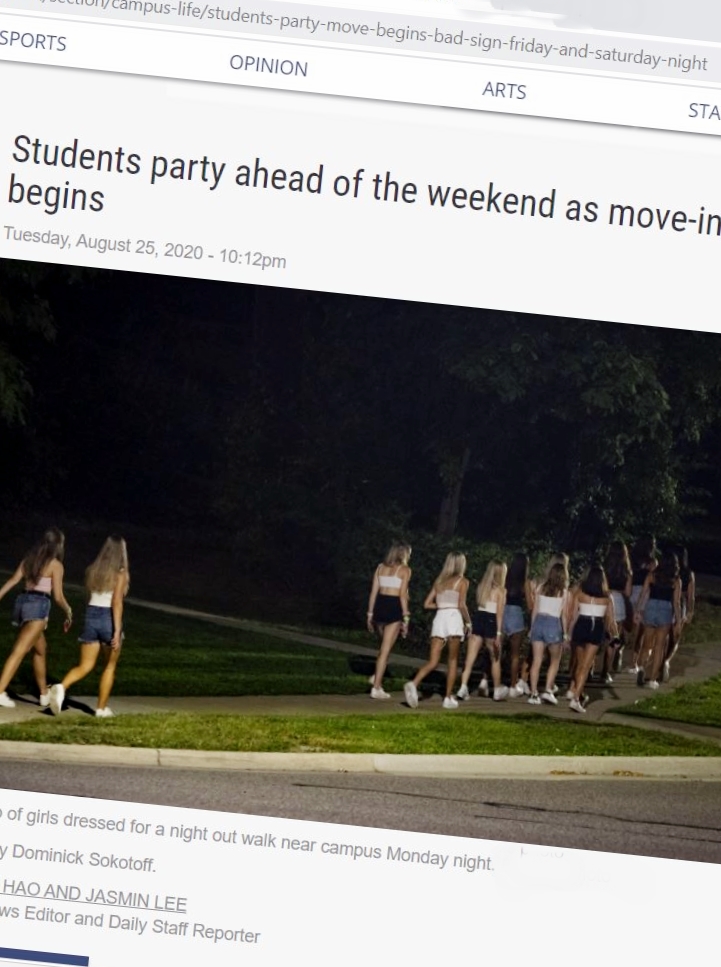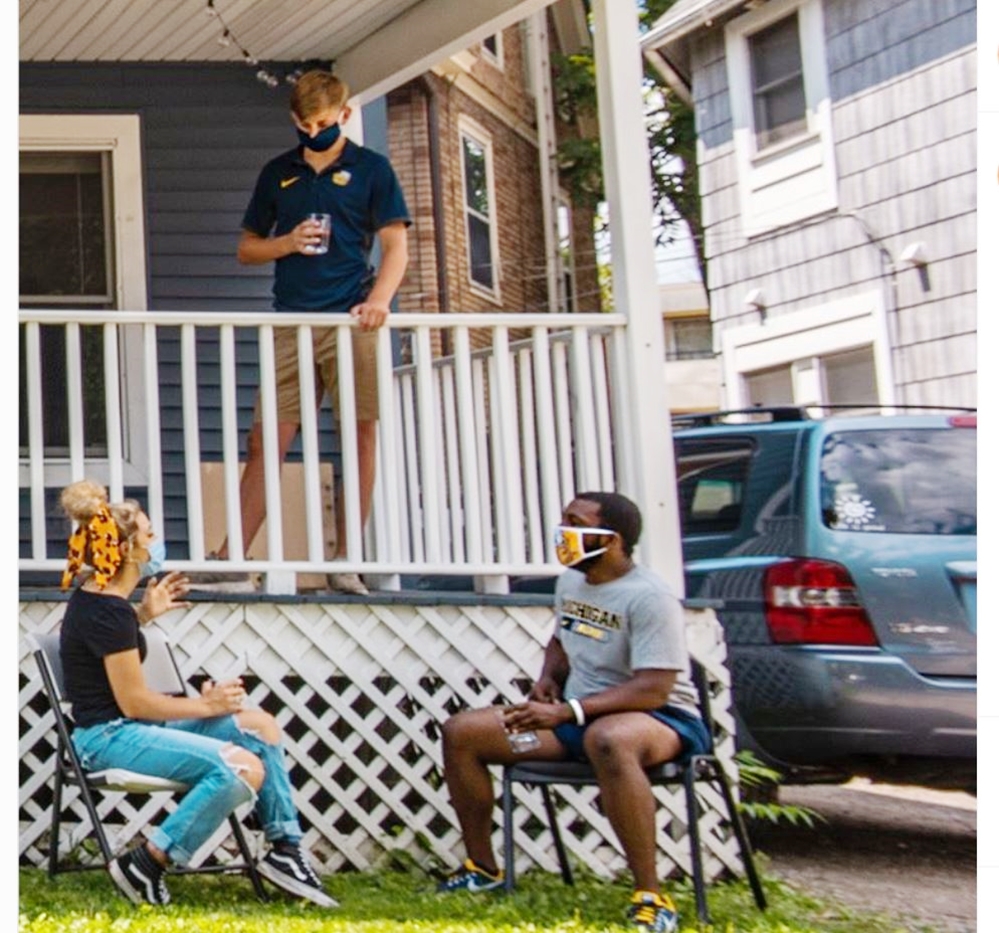Risky behavior, health fears and reopening resistance emerge at the University of Michigan, where four days of freshman orientation began Tuesday as a run-up to the start of classes Monday.
"Some were already partying Sunday through Tuesday," The Michigan Daily reports.
These parties do not bode well for Friday and Saturday night, the two busiest going-out nights on campus and when most students who plan on returning will have moved in.
The Daily's reporters saw multiple parties near campus and many maskless groups walking around dressed for a night out Sunday and Monday.

Monday night post at The Michigan Daily.
Separately, more than 80 dormitory resident advisers call for increased protections and tell administrators: "We strongly feel that we are unprepared to ensure the safety of ourselves, let alone our residents and our community." The student paper has that quote and others from a Sunday night letter, which also says:
"It has become clear that the University’s current plan regarding on-campus housing and ResStaff [Residential Staff] roles is not conducive to keeping student communities safe during this pandemic." ...
Demands listed include added measures for health and safety, such as plexiglass between sinks in shared bathrooms and more hand sanitizing stations. The letter also asked for high-density areas like shared bathrooms in residence halls to be cleaned at least three times per day. ...
University Housing did not respond to The Daily’s request for comment.
The roughly seven dozen signers used initials or pseudonyms to avoid possible penalties. A university vice president met Monday night with 118 RAs and assured them no retaliation would occur. Resident advisers, who are undergraduates hired to spend 20 hours a week helping dorm-mates, request personal protective equipment.
The dorm advisers want the option for Covid tests throughout the semester, something U-M plans to offer mainly for people with symptoms or exposure to diagnosed patients. It also will test 3,000 to 3,500 individuals each week in a "random, opt-in" program.
Regularly testing all students would be "science fiction," President Mark Schlissel has said, though schools such as the University of Illinois plans to test students twice weekly. At a faculty town hall this month, according to The Daily, Schlissel said testing could give a "false sense of security" and encourage partying.

Masked, distanced students are shown in a doing-it-right Instagram from U-M
About 70 percent of U-M classes will be taught remotely in what the university calls a hybrid fall semester. All in-person coursework ends after the Nov. 21-29 Thanksgiving break. Michigan State, by contrast, last week moved virtually all undergraduate instruction to an online format. Eastern Michigan has delayed on-campus instruction by three weeks and starts with remote learning.
"The mission of the university is important," Schlissel said at the virtual town, the student paper says. "That's why we’re working so hard to keep it being delivered at as high and effective a level as possible. ... We're backed up by one of the world's greatest health systems."
In an email to faculty and staff last Tuesday, Schlissel and Provost Susan Collins said they "will continue to evaluate circumstances and change our plans as necessary." The message came hours after a few staff members protested in front of the Fleming Administration Building and Schlissel’s home.
Related:
'Limit the damage' from campus classes, nearly 300 Michigan professors urge Whitmer, Aug. 25


 by
by







